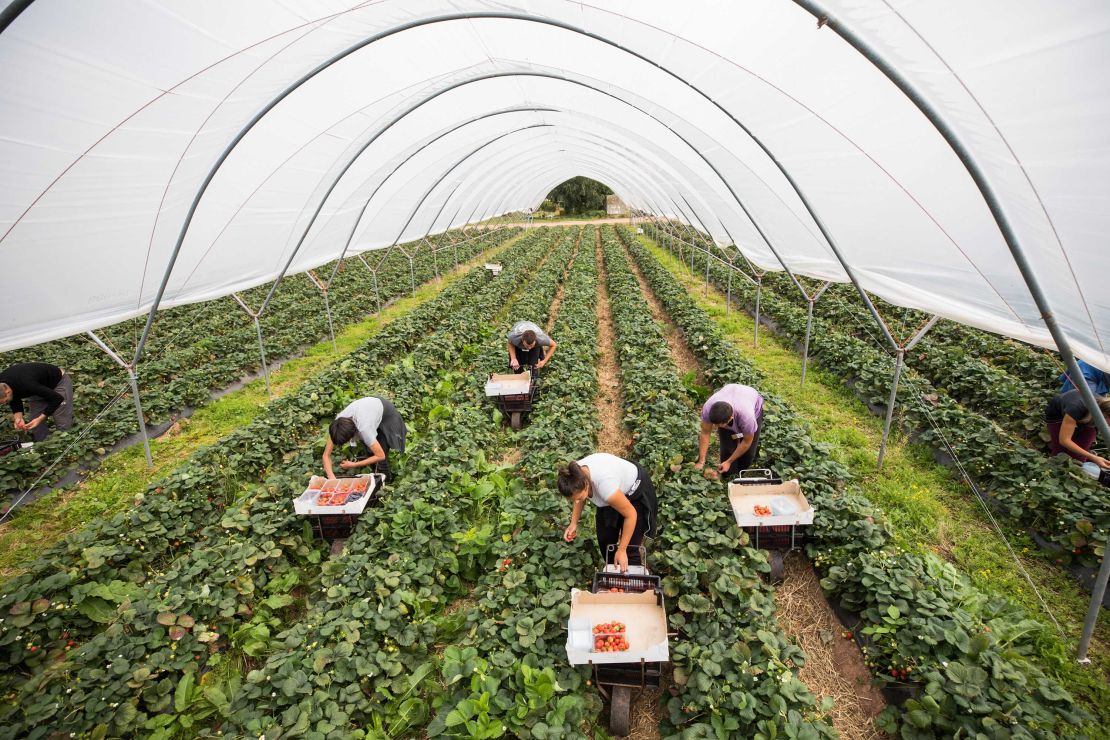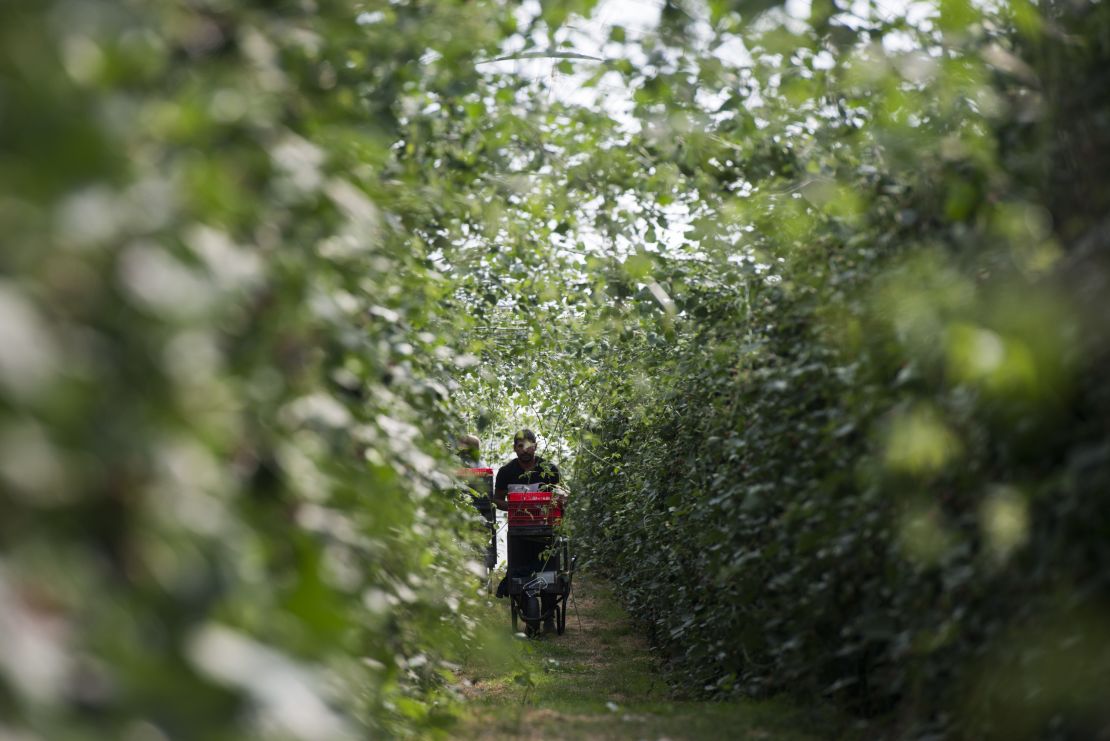Coronavirus travel restrictions have led to a labor crisis for British agricultural sectors that traditionally rely on seasonal migrant workers from Europe, forcing some employers to bring workers in on charter flights.
One of the UK’s largest produce suppliers, G’s Fresh, said it had chartered a plane to bring workers to the UK from Romania on Thursday “to ensure we have enough seasonal agricultural workers to continue to feed our nation.”
Air Charter Service told CNN it was flying 150 workers from Romania to London’s Stansted Airport and had five more flights planned over the coming weeks, bringing about 900 people in total.
The need to bring in workers from eastern Europe to feed British families has exposed the UK’s reliance on typically low-paid immigrants to prop up services that keep the nation running.
The UK government says it’s working with the industry to help fill what the National Farmers’ Union estimates is around 70,000 seasonal worker roles. NFU President Tom Bradshaw said in a statement that growers were “extremely concerned” about the impact of coronavirus on this critical workforce, calling on workers furloughed from other jobs in the UK to “pick for Britain.”

The charity Concordia said it has had 35,000 expressions of interest in its Feed the Nation recruitment campaign, but only 5,500 chose to go through to interview stage. “That uptake, it gives you an indication that these aren’t jobs that everyone is willing to do,” Fizza Qureshi, CEO at Migrants’ Rights Network, told CNN.
Related stories
She said the crisis showed “how important migrant workers are for the UK in terms of its economy, society and how they have an essential role to play in some of the lowest paid sectors around, unfortunately.”
There are fears that the coronavirus crisis is a foretaste of difficulties that could flow from Brexit. The ability for the UK to set its own immigration rules, rather than accept unlimited migration from the EU, played a big part in the 2016 referendum campaign. Before the pandemic hit, the UK government published its plan for a post-Brexit immigration system.
Under a new “points-based” scheme, prospective immigrants would be scored on their skills, earning potential and qualifications. There was no pathway for so-called lower-skilled, lower paid workers; instead, the government said it would expands its seasonal workers visa scheme to bring in 10,000 people a year. Critics of the plan said it would exclude some grades of nurses and almost all care workers, sectors that depend on a strong migrant labor force.
Questions over new immigration laws
Legislation to pave the way for the new rules was due to be introduced in parliament next week. But with lawmakers due to convene via video conference, and with questions being raised over the suitability of the system in the wake of the coronavirus crisis, it’s not clear whether the bill will be introduced as planned.
Robert McNeil, Deputy Director of the Migration Observatory at the University of Oxford, told CNN that the coronavirus crisis underscored Britain’s reliance on a steady stream of workers from abroad. “It’s a taste of what happens without access to low-skilled migrant labor,” he said. “Industries have been created on the basis of there being access to this labor. We’ve created business models around that.”

McNeil said tens of thousands of people could fall through the administrative cracks of the government’s EU settlement scheme, which will allow some to continue to live and work in the UK after Brexit. They may miss the application deadlines or not have certain documentation, he said – and these could be the very people preoccupied with doing vital jobs as grocery store employees, delivery drivers and garbage collectors, as well as working for National Health Service.
“Can you imagine how the public would respond now, if they knew that the nurse that potentially was treating them was going to be told that she was an illegal immigrant and deported?”
The government has lowered the salary threshold under its proposed immigration system to £26,500 ($33,000). But Qureshi said that’s still unrealistically high for many roles filled by migrants. She said a long-term solution was needed, since care homes, for example, cannot pay workers more without government support.
Migrants must be paid a living wage and not just valued in transactional terms, Qureshi said. “They’re on the frontline as nurses, as care workers and keeping our transport systems alive. I just don’t think it’s been recognized until now and it’s a shame that it’s taken a crisis to do that.”
“There are individuals out there who have literally put their lives on the line for us.”
“Migrants benefit us in so many other ways beyond the economy. That’s overlooked unfortunately, by the government, but sometimes also by the media and the general public who only see the worth of a migrant through them being a commodity.”





